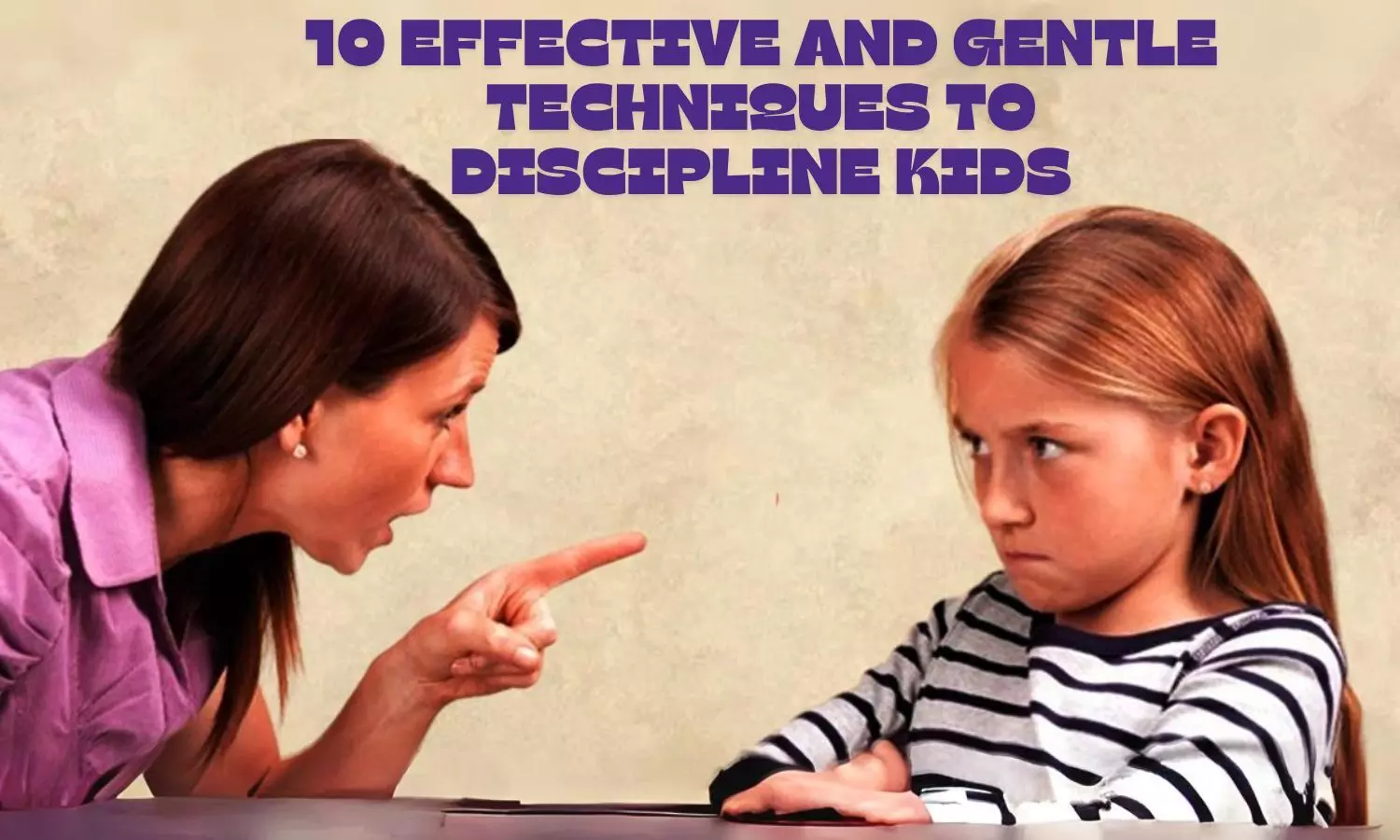Live
- Poonch terror attack: Security forces release sketches of two terrorists
- Constituency Watch: For BJP it’s fight for consolidation while Congress sees an opportunity to regain past glory in Nandurbar
- Congress, BRS, AIMIM following Muslim League agenda: J P Nadda
- PeopleStrong, Google Cloud join hands to transform employee experience with AI
- Siguler Guff invest Rs 240 crore in Hyderabad-based microfinance lender Spandana Sphoorty
- 'BJP CM will take oath in Odisha on June 10', roars PM Modi at Berhampur rally
- Five-year-old boy found dead after being swept away in Texas floodwaters
- Akhilesh appoints Shyam Lal Pal as new state president of SP
- Manipur: Educational institutions close for two days after heavy rains, hailstorm
- End of BJD rule on June 4, says Modi
Just In
10 Effective and Gentle Techniques to Discipline Kids


10 Effective and Gentle Techniques to Discipline Kids
Positive discipline strategies promote healthy development while effectively instructing children in behaviour management and preventing harm.
One of your responsibilities as a parent is to teach your child appropriate behaviour. It's a job that requires time and patience. However, it helps to learn effective and healthy discipline strategies.
Here are ten effective and gentle techniques to discipline kids:
1. Show and Tell: Use calm words and actions to teach children what is right and wrong. Model the behaviours you want to see in your children.
2. Set limits: Establish clear and consistent rules that your children can follow. Make sure to explain these rules in age-appropriate terms.
3. Give consequences: Explain the consequences of not following the rules calmly and firmly. For example, tell them that if they do not pick up their toys, you will put them away for the remainder of the day. Be prepared to follow through immediately. Don't give in and offer them what they are pestering for after a few minutes. However, never take away something your child truly requires, such as a meal.
4. Hear them out: Listening is crucial. Allow your child to finish their tale before assisting with the problem. Watch for patterns in misbehaviour, such as when your child is jealous. Instead of simply imposing consequences on your child, discuss in detail with them.
5. Give them your attention: Attention is the most powerful tool for effective discipline—reinforcing positive behaviours while discouraging negative ones. Remember that every child wants their parents' attention.
6. Catch them being good: Children need to understand when they do something wrong or something right. Recognise and encourage positive behaviour, praising success and efforts. Be specific ("Wow, you did a good job putting that toy away!").
7. Know when not to respond: Ignoring bad behaviour can be an effective way to stop it, as long as your child is not doing anything dangerous and receives plenty of attention for good behaviour. Ignoring bad behaviour can teach children the natural consequences of their actions. For example, if your child continues to drop their cookies on purpose, they will eventually run out of cookies to eat. If they throw or break their toy, they will be unable to play with it. It won't be long before they learn not to drop their cookies and to play safely with their toys.
8. Be ready for trouble: Plan for situations where your child may misbehave. Prepare them for upcoming events and how you expect them to behave.
9. Redirect negative behaviour: Children can misbehave because they are bored or do not know any better. Find another activity for your child to do or an ideal hobby or a pastime activity.
10. Call a timeout: A time-out is especially useful when a specific rule is violated. To use this discipline tool effectively, children should be warned of a time out if they do not stop, reminded of their wrongdoing in as few words and with as little emotion as possible, and removed from the situation for a predetermined amount of time (1 minute per year of age is a good rule of thumb). Instead of setting a timer, try allowing children aged 3 and up to lead their own time-out. You can simply say, "Go to time out and return when you feel ready and in control." This strategy, which can help a child learn and practice self-management skills, is also effective for older children and adolescents.
Spanking and harsh words are harmful and ineffective. Here's why:
"Effective Discipline to Raise Healthy Children" emphasises the importance of teaching positive behaviour rather than punishing negative behaviour. Research shows that spanking, slapping, and other forms of physical punishment do not effectively correct a child's behaviour. The same is true when yelling at or shaming a child. In addition to being ineffective, harsh physical and verbal punishments can have a negative impact on a child's long-term physical and mental health.
Learn from mistakes, including your own!
Remember that, as a parent, you can give yourself a break if you feel out of control. Simply ensure that your child is in a safe place, and then give yourself a few minutes to breathe deeply, relax, or call a friend. When you feel better, return to your child, hug them, and start over.
If you don't handle a situation well the first time around, don't be concerned. Consider what you could have done differently and try to replicate it the next time. If you believe you have made a serious mistake in the heat of the moment, wait until you have cooled down, apologise to your child, and explain how you intend to handle the situation in the future. Make sure you keep your promise. This gives your child a good example of how to recover from mistakes and rectify them.

© 2024 Hyderabad Media House Limited/The Hans India. All rights reserved. Powered by hocalwire.com






